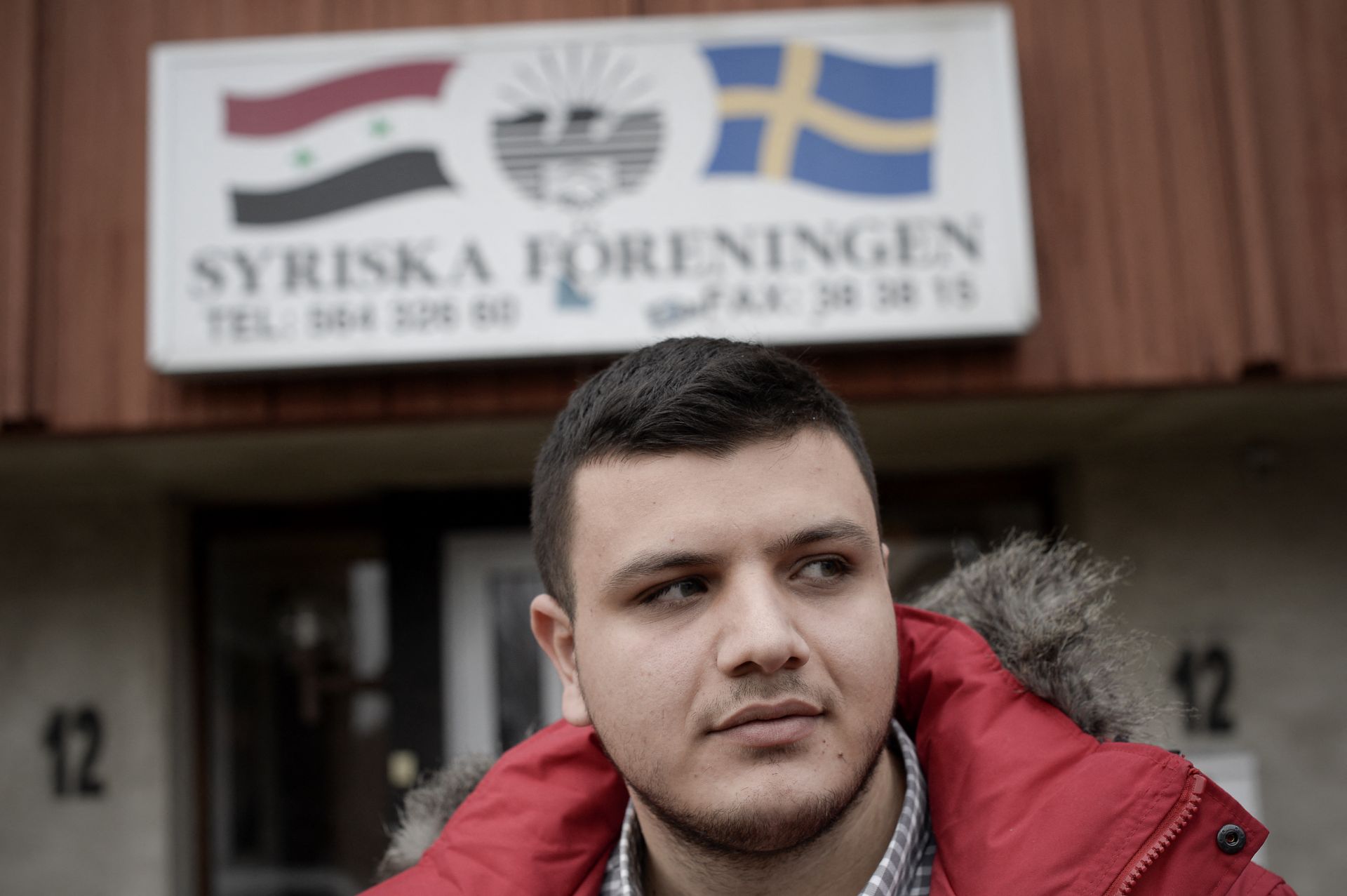- Home
- Middle East
- European Countries Suspend Syrian Asylum Decisions After Assad’s Fall

Hanna Shammo, 23, from Syria is pictured outside the Syrian Association on November 19, 2013 in Vaellingby, near Stockholm ©JONATHAN NACKSTRAND / AFP
Germany, France, Austria, Switzerland and several Nordic countries said Monday they would freeze all pending asylum requests from Syrians, a day after the ouster of president Bashar al-Assad.
While Berlin and other governments said they were watching the fast-moving developments in the war-ravaged nation, Vienna signalled it would soon deport refugees back to Syria.
Far-right politicians elsewhere made similar demands, including in Germany, home to Europe's largest Syrian community, at a time when immigration has become a hot-button issue across the continent.
World leaders and Syrians abroad watched in disbelief at the weekend as Islamist-led rebels swept into Damascus, ending Assad's brutal rule while also sparking new uncertainty.
A German foreign ministry spokesman pointed out that "the fact that the Assad regime has been ended is unfortunately no guarantee of peaceful developments" in future.
Germany has taken in almost one million Syrians, with the bulk arriving in 2015-16 under ex-chancellor Angela Merkel.
Interior Minister Nancy Faeser said many Syrian refugees "now finally have hope of returning to their Syrian homeland" but cautioned that "the situation in Syria is currently very unclear".
The Federal Office for Migration and Refugees had imposed a freeze on decisions for ongoing asylum procedures "until the situation is clearer".
She added that "concrete possibilities of return cannot yet be predicted and it would be unprofessional to speculate in such a volatile situation."
Rights group Amnesty International slammed the freeze on asylum decisions, stressing that for now "the human rights situation in the country is completely unclear".
The French interior ministry said it too would put asylum requests from Syrians on hold.
'Repatriation and deportation'
In Austria, where about 100,000 Syrians live, conservative Chancellor Karl Nehammer instructed the interior ministry "to suspend all ongoing Syrian asylum applications and to review all asylum grants".
Interior Minister Gerhard Karner added he had "instructed the ministry to prepare an orderly repatriation and deportation programme to Syria".
"The political situation in Syria has changed fundamentally and, above all, rapidly in recent days," the ministry said, adding it is "currently monitoring and analysing the new situation".
Denmark, Sweden and Norway also said Monday they were suspending the examination of asylum applications from Syrian refugees.
The leader of the far-right Sweden Democrats, a coalition partner in the government, said residence permits for Syrian refugees should now be "reviewed".
Switzerland in turn decided on Monday to suspend decisions on asylum applications from Syrians, the federal authorities announced, following the fall of Bashar al-Assad.
“The SEM is suspending asylum procedures and decisions for Syrian asylum seekers until further notice,” wrote the State Secretariat for Migration on social network X.
It says it is “currently not in a position to make a well-founded assessment of whether there are grounds for asylum and whether removal is reasonably required”.
In Greece, a government spokesman voiced hope that Assad's fall will eventually allow "the safe return of Syrian refugees" to their country, but without announcing concrete measures.
'Populist and irresponsible'
In Germany, the debate gained momentum as the country heads towards February elections.
The centre-right opposition CDU suggested that rejected Syrian asylum-seekers should now lose so-called subsidiary protection.
CDU MP Jens Spahn suggested that Berlin charter flights to Syria and offer 1,000 euros to "anyone who wants to return".
Members of Chancellor Olaf Scholz's Social Democrats criticised the debate as "populist and irresponsible".
Greens party deputy Anton Hofreiter also said "it is completely unclear what will happen next in Syria" and deportation talk was "completely out of place".
UNHCR’s advice is to remain focused on the issue of returns. Patience and vigilance will be necessary, hoping that developments on the ground will evolve in a positive manner, allowing voluntary, safe and sustainable returns to finally occur – with refugees able to make informed decisions, said the UN Refugee Agency on a statement, monday.
With AFP
Read more



Comments